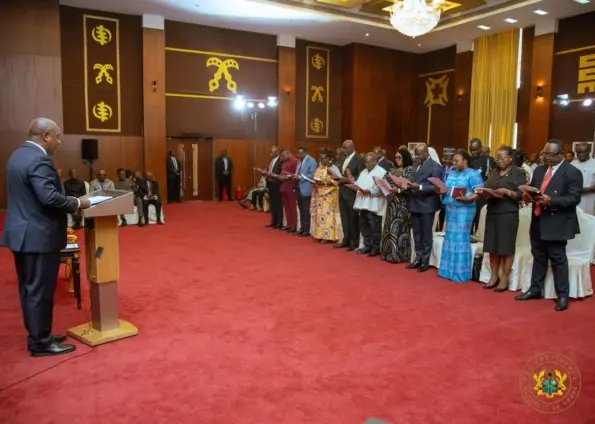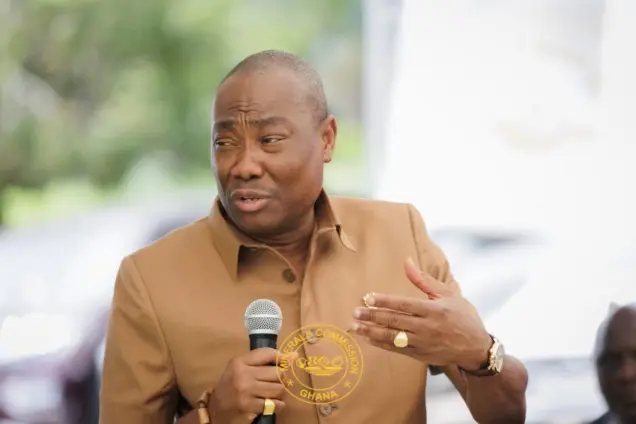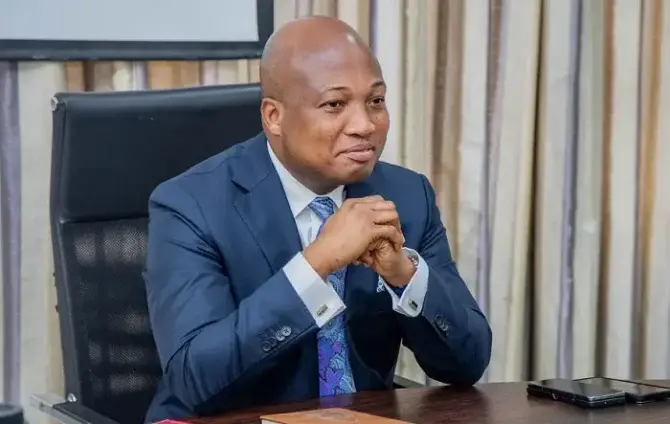The performance of the Ghanaian Cedi has recently become a focal point of intense debate, with contrasting viewpoints emerging from prominent political figures. Former Vice President Dr. Mahamudu Bawumia has voiced concerns about the Cedi’s recent appreciation, questioning whether it’s grounded in sound economic policy. In response, Deputy Finance Minister Thomas Nyarko Ampem has staunchly defended the government’s approach, asserting that tangible results are being achieved despite what he characterizes as empty criticism. This article will offer comprehensive coverage of these claims concerning the Ghanaian Cedi, providing verifiable insights into the arguments presented by both sides.
This analysis delves into the intricacies of the Finance Minister’s rebuttal and scrutinizes the validity of claims from both the government and its critics regarding the stability of the Ghanaian Cedi. By examining the economic strategies and data cited by each side, this piece aims to provide clarity on the factors currently influencing Ghana’s currency.
Bawumia’s Criticism of Cedi Gains
Dr. Bawumia, speaking at the Young Executive Forum in London, raised questions about the sustainability of the Ghanaian Cedi’s gains. He suggested that the appreciation wasn’t supported by concrete economic strategy. He questioned the policy basis for the recent appreciation of the cedi, suggesting the gains were not backed by any substantive economic strategy.
Ampem has characterized Bawumia’s statements as a continuation of past critiques, referring to them dismissively.
Finance Minister’s Rebuttal: Results vs. Slogans
The Deputy Minister strongly rejected Bawumia’s claims, emphasizing the government’s commitment to delivering measurable outcomes. He stated, “while they shouted slogans, we are quietly delivering results.”
Ampem highlighted the significance of the Gold Board initiative in boosting gold exports. He cited a substantial increase in exports, stating, “From January to April 2024, gold exports were around $860 million. Today, thanks to the Gold Board and our structured approach, we’ve exported over $2.7 billion worth of gold.” This increase, according to Ampem, demonstrates the effectiveness of the government’s policies.
Furthermore, Ampem pointed to the revival of the IMF program as a key factor in boosting investor confidence and contributing to macroeconomic stability. He mentioned the reduction in borrowing and the consistent drop in Treasury bill rates since February, attributing these positive trends to the government’s prudent financial management.
Underlying Factors Influencing the Cedi
Beyond the political debate, broader global economic conditions play a significant role in influencing the Ghanaian Cedi. Fluctuations in commodity prices, changes in global interest rates, and overall economic stability in key trading partners all impact the currency’s performance.
Investor sentiment and confidence levels are also crucial determinants of the Cedi’s value. Positive perceptions of Ghana’s economic prospects tend to attract foreign investment, which in turn strengthens the currency. Conversely, negative sentiment can lead to capital flight and a weakening of the Cedi.
What Does This Mean For The Average Ghanian?
The stability, or instability, of the Ghanaian Cedi has direct implications for the cost of living for the average Ghanaian. A weaker Cedi leads to higher prices for imported goods, including essential items like food and fuel, thereby increasing the burden on households. The inverse is also true, a strong cedi will lower the cost of imported goods and services. It is important to seek professional financial advice before making any financial decisions.
For businesses, the Cedi’s performance can significantly impact profitability. Importers face higher costs when the Cedi weakens, while exporters benefit. The stability of the currency is, therefore, a crucial factor for business planning and investment decisions.
Conclusion
The debate surrounding the Ghanaian Cedi highlights the contrasting perspectives on the country’s economic management. The government defends its policies by pointing to increased gold exports and the positive impact of the IMF program, while critics question the sustainability of recent gains. A balanced perspective on the Cedi’s current state requires considering both domestic policies and global economic factors.
The performance of the Ghanaian Cedi remains a critical issue for the Ghanaian economy, affecting everything from the cost of living to business profitability. To stay up to date on the Ghanian Cedi, subscribe to our newsletter.
Image Source: MYJOYONLINE






















